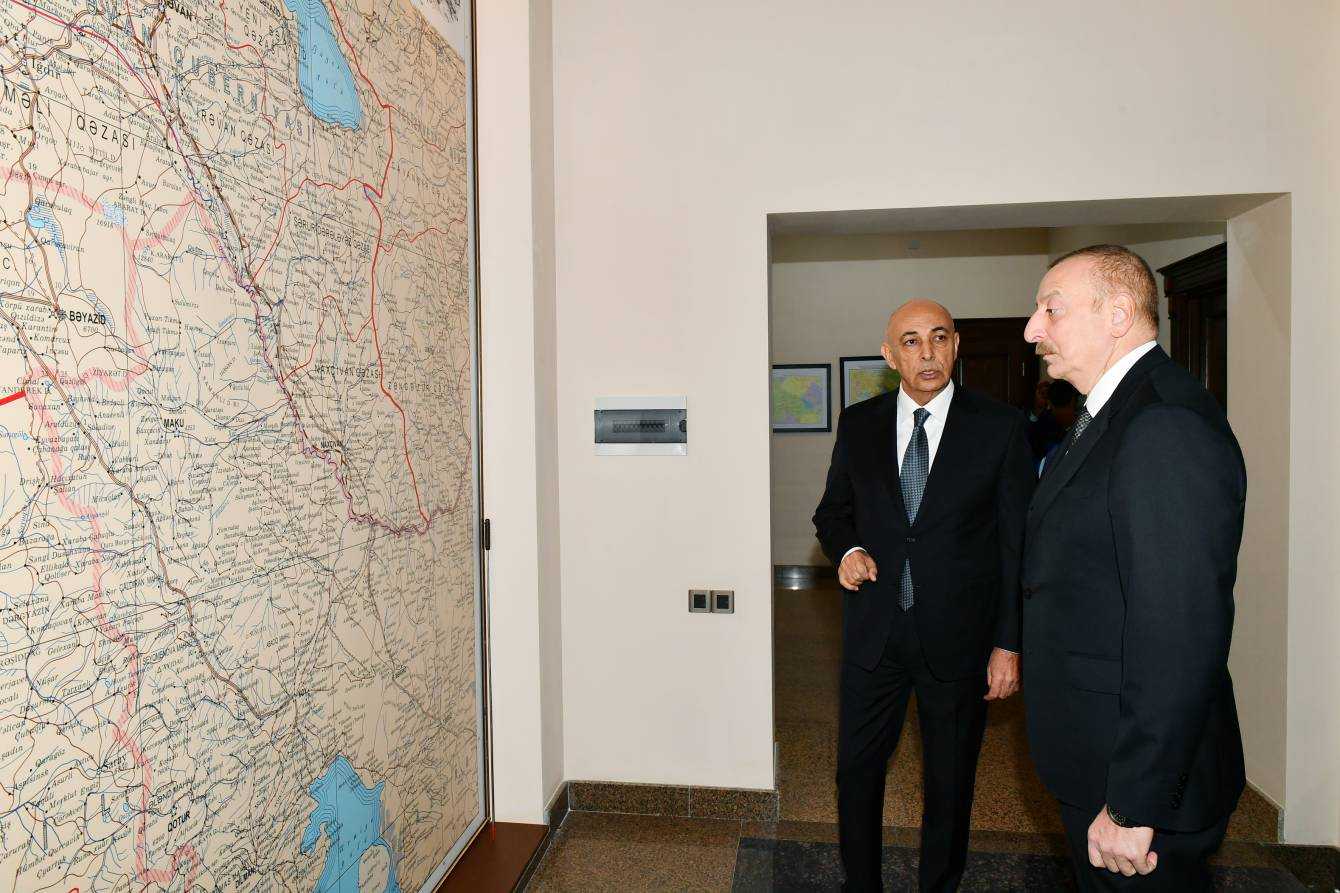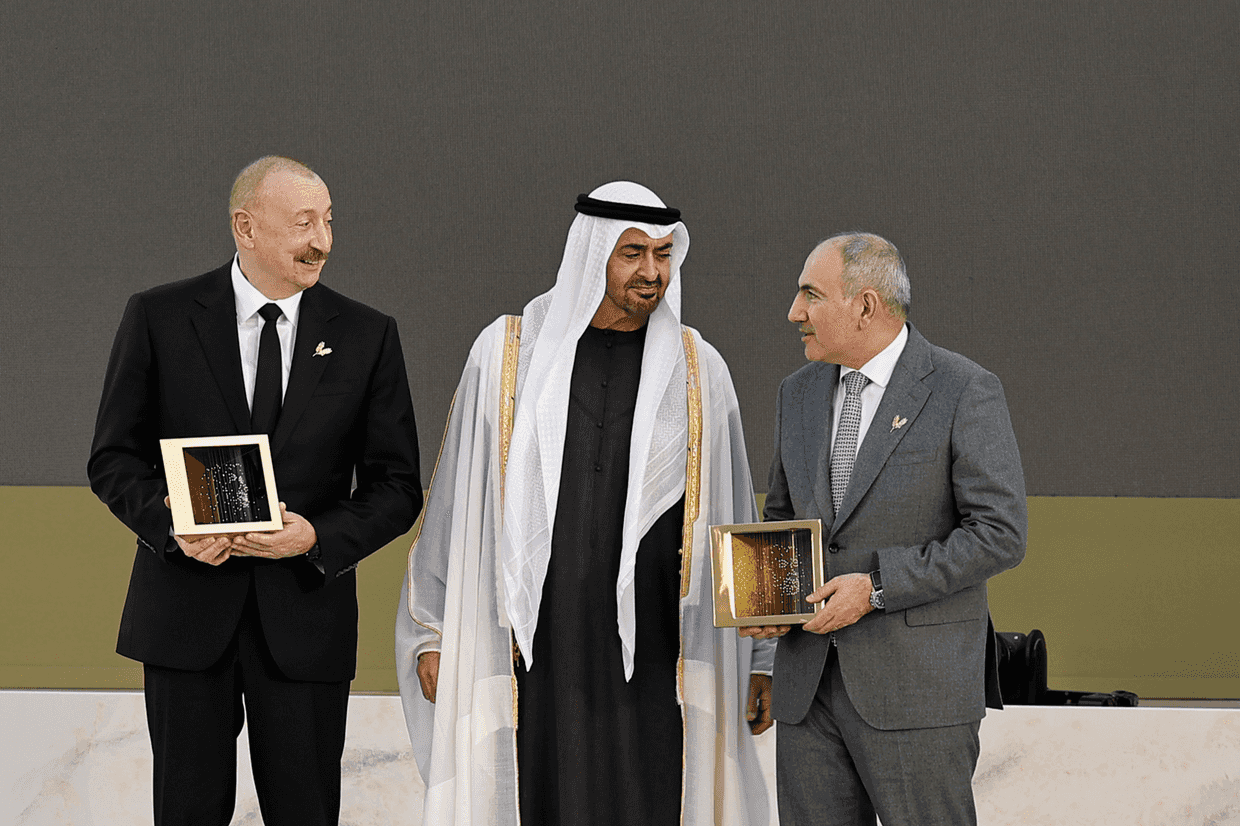Pashinyan and Aliyev meet at the Shanghai Cooperation Organisation summit
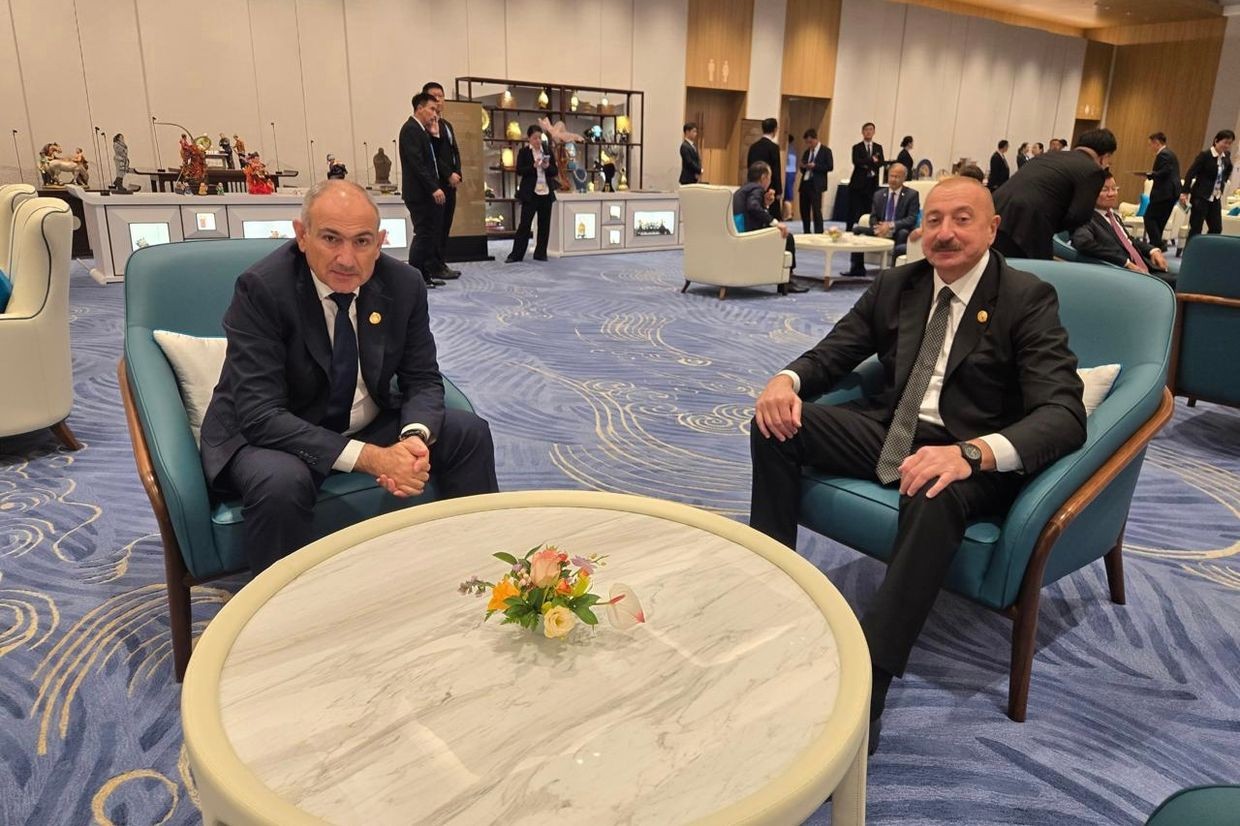
Editor’s note: This article has been updated to include more information about meetings held by Azerbaijani President Ilham Aliyev.
On Monday, Prime Minister Nikol Pashinyan and Azerbaijani President Ilham Aliyev met on the sidelines of the Shanghai Cooperation Organisation (SCO) summit to discuss the peace process.
According to identical statements issued by Pashinyan and Aliyev’s offices, they emphasised ‘the need for constructive dialogue, mutual trust and regional stability’.
‘Both leaders emphasised the positive dynamics formed as a result of the recent summit in Washington, which testifies to the international community’s support for the process of promoting peace and normalising relations’, the statement read.
It marked the first meeting between Pashinyan and Aliyev following the unprecedented summit in Washington on 8 August, which brought together Pashinyan, Aliyev, and US President Donald Trump, and resulted in a joint seven-point declaration between the three leaders outlining what had been agreed upon.
The Washington summit also disclosed the US involvement in the unblocking of a route through Armenia connecting Azerbaijan to its exclave of Nakhchivan, named the Trump Route for International Peace and Prosperity (TRIPP).
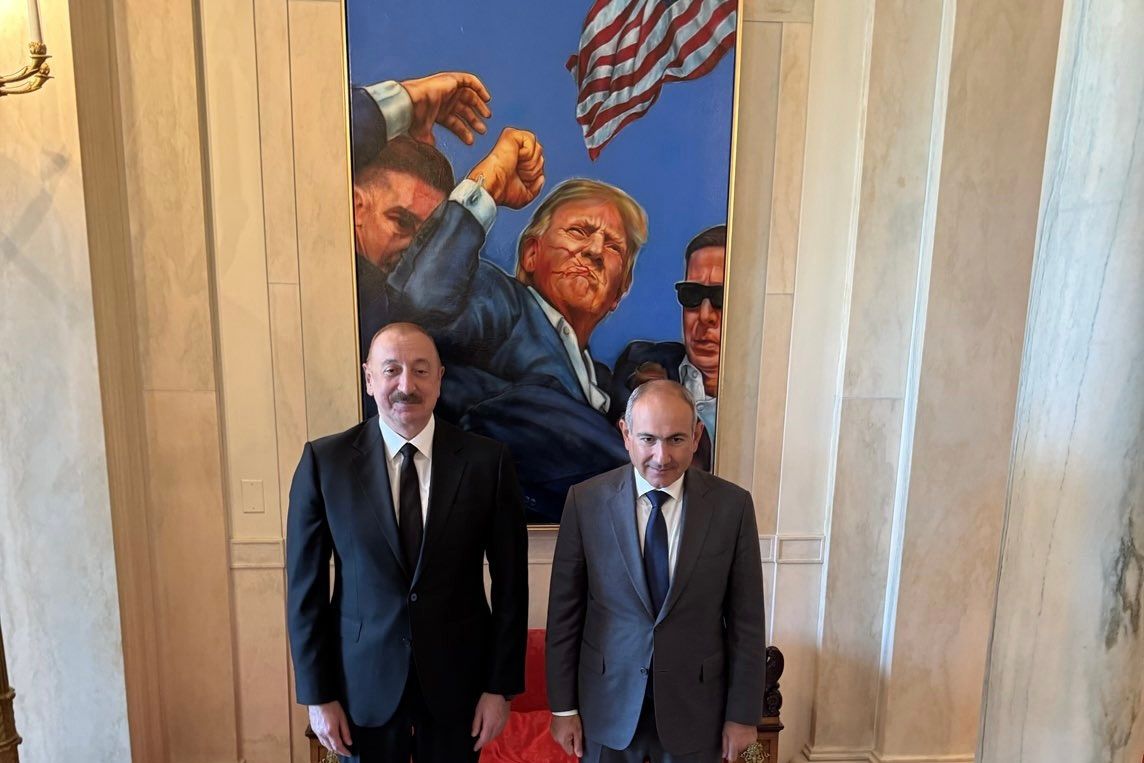
Pashinyan’s other meetings
Aside from Aliyev, during the summit, Pashinyan had other high-profile meetings, including with the presidents of Russia and Turkey. The summit also saw the establishment of a strategic partnership between Armenia and China, as well as the establishment of diplomatic ties with Pakistan.
On Sunday, during his meeting with the Russian President Vladimir Putin, Pashinyan discussed ‘issues of regional and international importance’.
According to the readout from Pashinyan’s office, the two leaders ‘attached importance to the meeting, emphasising that it is an effective opportunity to discuss topical issues of bilateral relations and ways of their further development’.
They also said they ‘highly appreciated the continuous and active’ dialogue between the two states.
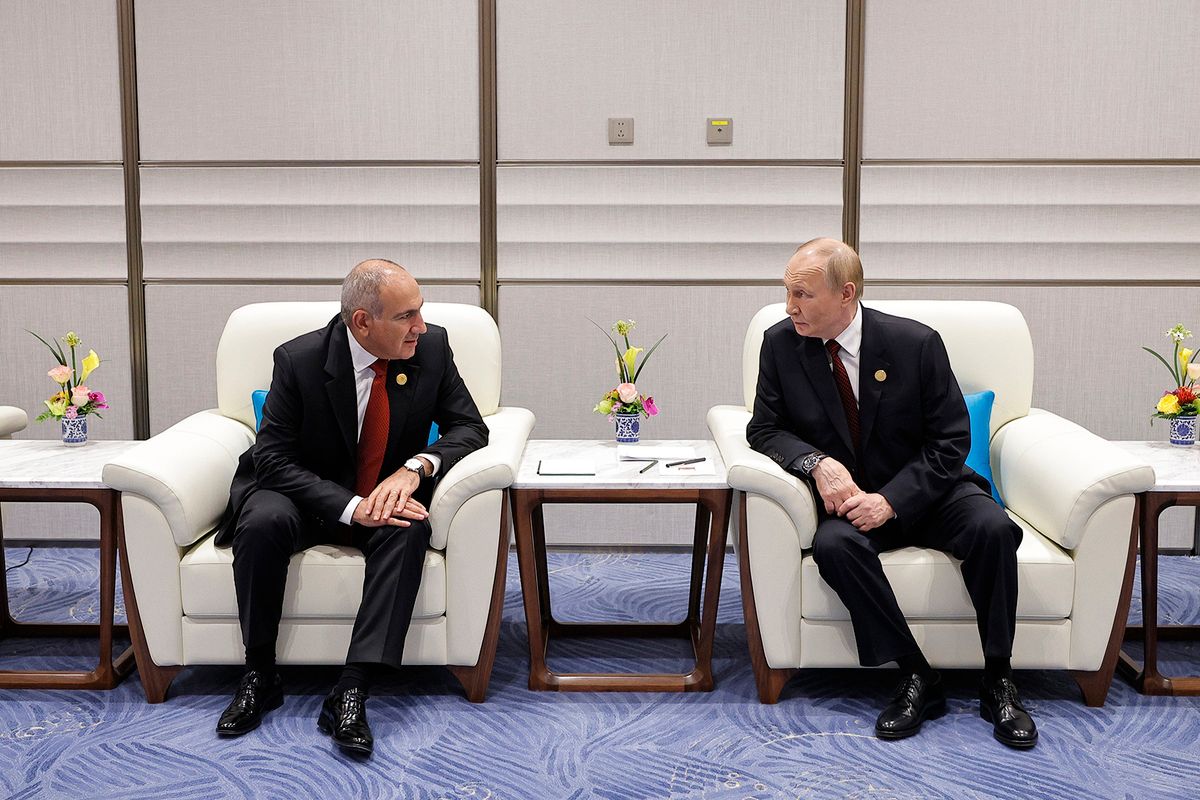
The Russian state-run media outlet TASS quoted Putin as saying during the meeting that he was glad to have the opportunity to talk to Pashinyan. He noted that they did not have a bilateral meeting ‘for a long time, and many questions have accumulated, bilateral, regional, international’.
Following the meeting, Kremlin spokesperson Dmitry Peskov assessed the meeting as ‘a very good conversation, a long one’.
Pashinyan also met with the Turkish President Recep Tayyip Erdoğan. They ‘attached importance to the steps towards establishing stability and peace in the region’.
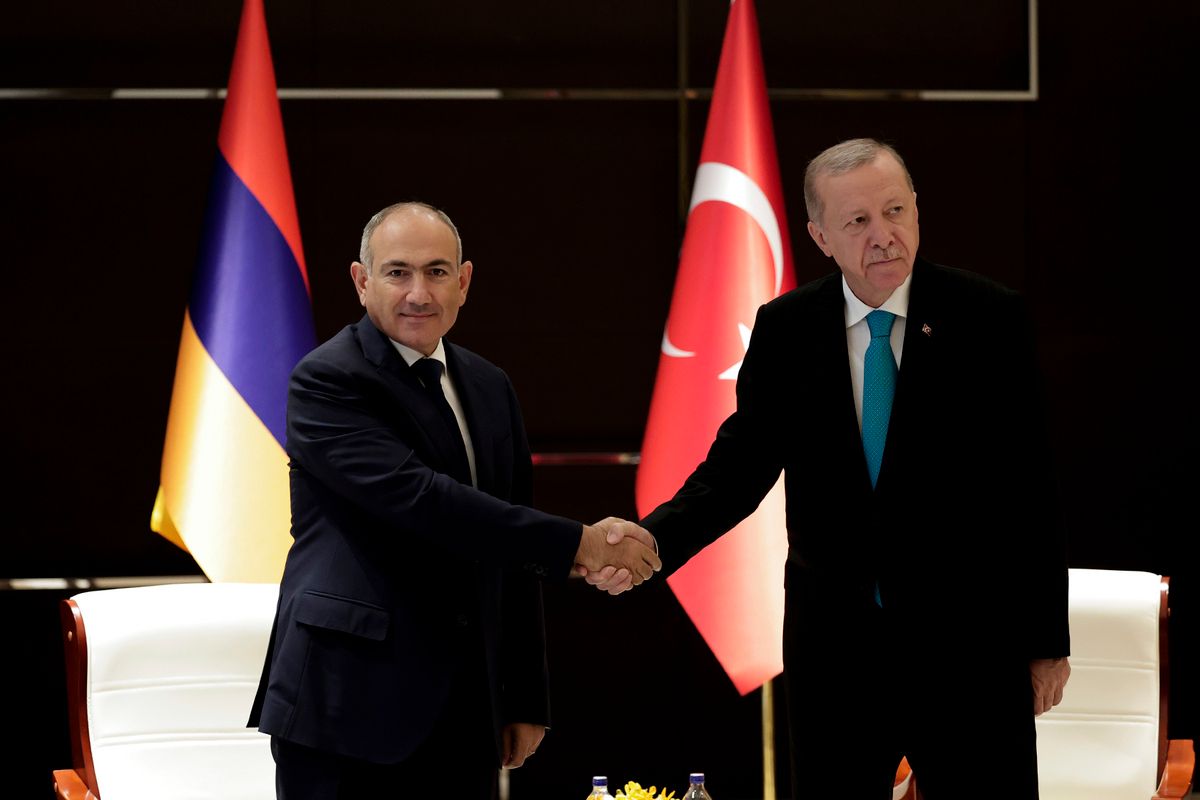
The comment appeared to be a reference to the meeting in Washington.
According to Pashinyan’s office readout, the two leaders ‘emphasised the need for maintaining a constructive approach with the purpose of forming an atmosphere of mutual trust and developing regional connectivity’.
Based on the results of the meeting between Pashinyan and Chinese President Xi Jinping, the sides announced that a strategic partnership is being established between the two states.
Pashinyan further ‘reaffirmed’ Armenia’s desire to join the SCO and an agreement was reached ‘to deepen cooperation within the framework of the SCO’.
The summit also saw the establishment of diplomatic relations between Armenia and Pakistan, which, according to analysts, would pave the way for Armenia joining the SCO with Pakistan being its member state.
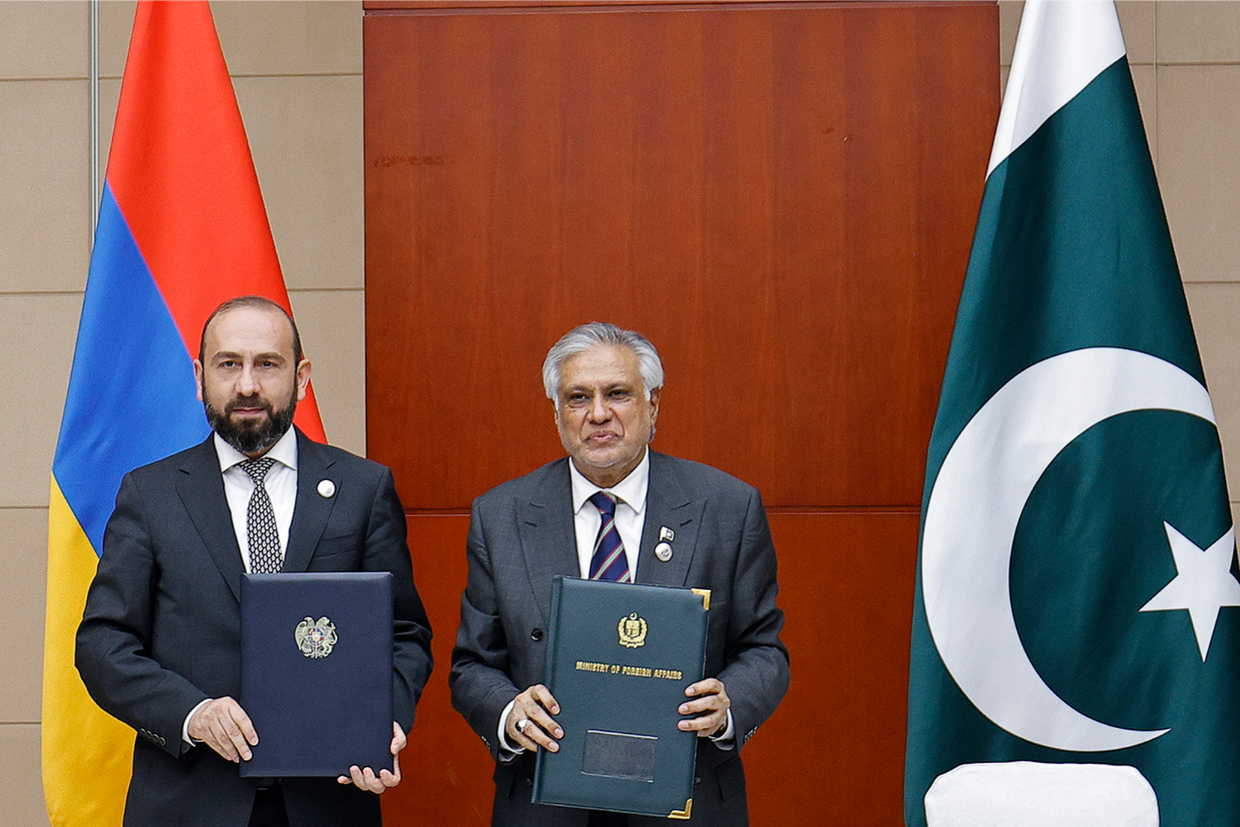
Aliyev meets with Erdoğan
Before the meeting with Pashinyan, Aliyev met with his Turkish counterpart, Recep Tayyip Erdoğan.
The presidential website wrote that during the meeting, discussions touched upon cooperation between SOCAR and Turkey’s BOTAŞ company.
‘Both sides highlighted the importance of delivering Azerbaijani gas to Syria through Turkey territory with Qatar’s financial support, and the two leaders also reviewed prospects for joint energy projects of Azerbaijan and Turkey in other countries’, noted the presidential website.
As the heads of state stressed, the Kars-Iğdır-Dilucu railway lines and the exchanged views on ongoing railway projects in Azerbaijan, including in the Nakhchivan region.
As reported by the presidential website, Aliyev and Erdoğan emphasised the reconciliation process between Azerbaijan and Armenia and highlighted Turkey’s stabilising role in regional issues.
On the same day, Aliyev also met with Maldivian President Mohamed Muizzu, and Pakistani Prime Minister Muhammad Shehbaz Sharif.
There were no details about the meetings from official Azerbaijani sources.
Aliyev says Azerbaijan supports China’s positions
Aliyev’s first meeting at the SCO was on Sunday with his Chinese counterpart Xi Jinping.
The presidential website wrote that Xi emphasised ‘an increase in trade turnover between the two countries and the expansion of cooperation in fields such as energy, including renewable energy, and the digital economy’.
Xi also noted Azerbaijani–Chinese cooperation in regards to the One Belt, One Road initiative. In particular, he stressed ‘the importance’ of Chinese goods being transported through Azerbaijani territory, as well as highlighting the significance of the Trans-Caspian route.
Beyond economics, Xi also touched on the importance of direct dialogue between Azerbaijan and Armenia, affirming China’s commitment to ‘the principle of non-interference in the internal affairs of other countries’.
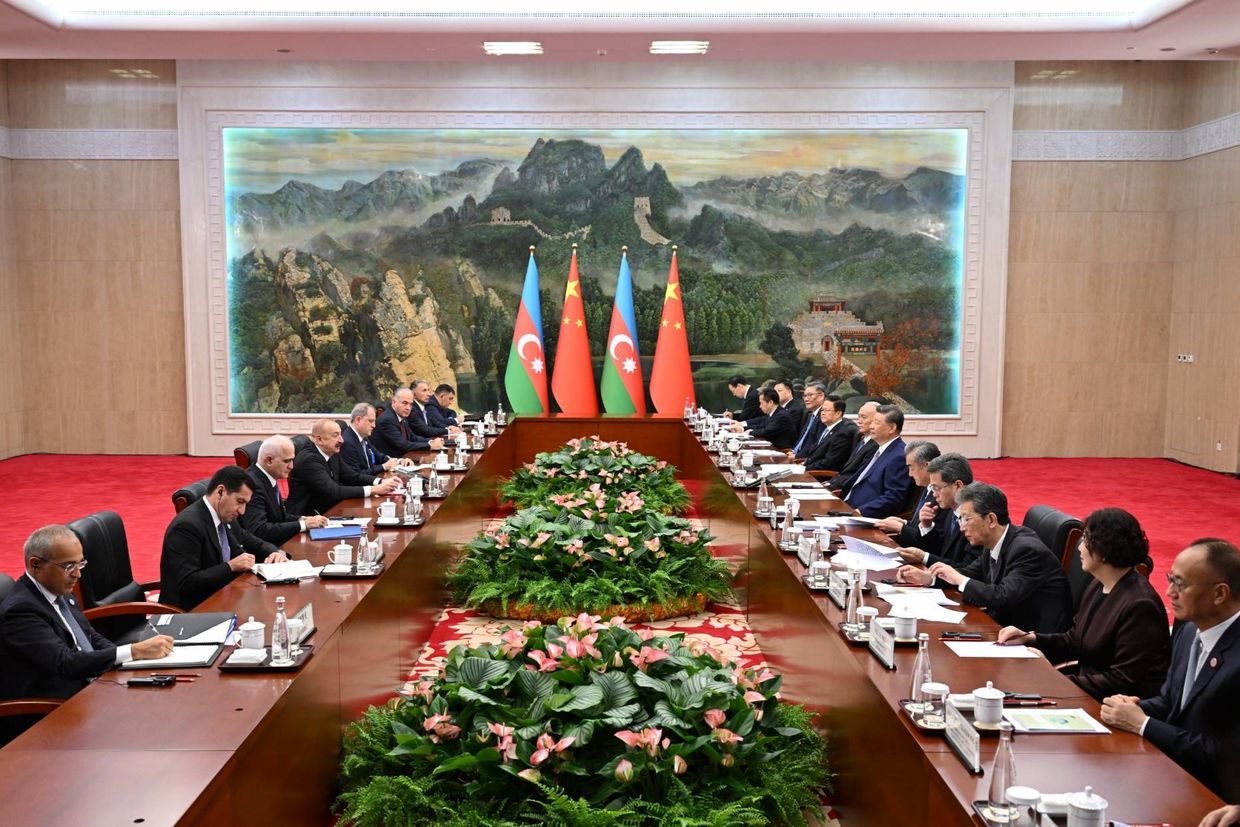
In turn, Aliyev emphasised that Azerbaijan supported China in regards to Taiwan, Hong Kong, and the Xinjiang Uyghur Autonomous Region.
Also on Sunday, Aliyev met with a number of Chinese businesspersons to discuss increased cooperation. During his meeting with Xie Yi, the founder and chair of the Sichuan Sunsync Photovoltaic Technology Company, they agreed to build a production facility for solar panels. Other discussions revolved around cooperation with Azerbaijan’s state-run oil company SOCAR and participation in the Baku International Sea Port project, among other things.
On Monday, Aliyev continued his meetings with the President of the Asian Infrastructure Investment Bank (AIIB), Jin Liqun.

Similar to his conversations with Chinese businesspersons the previous day, the discussions here revolved around cooperation in the green energy and construction sectors. Following the meeting, Aliyev and Jin signed a joint declaration on strategic cooperation.
Despite his successful meetings with China, it appears Aliyev was not able to build stronger ties with Indian Prime Minister Narendra Modi.
Unnamed sources told Azerbaijani pro-government media outlet Anewz.az that India, a full SCO member, again spoke out against Azerbaijan’s application to join the SCO. The rejection likely stems from Azerbaijan’s close ties with Pakistan.
Prior to the SCO meeting in China, India voiced opposition to Azerbaijan and Turkey being involved because of their support for Pakistan.






